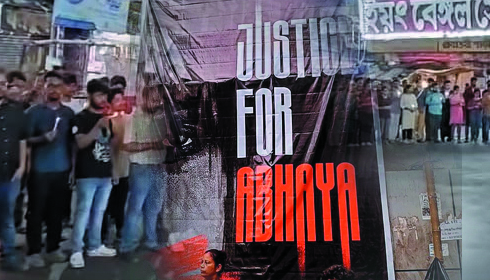
State Government Agrees to Junior Doctors' Demands for Meeting with CM
In a remarkable breakthrough, the West Bengal administration has agreed to the key demands of the protesting young physicians. Dr. Manoj Pant, the state's chief secretary, made the declaration, signalling a potential breakthrough in the protracted dispute that has paralysed healthcare services across the state for weeks.
The key demand concerns transparency in discussions between the state government and junior doctors. This became a significant issue following the arrest of Tala Police Station's Officer-in-Charge (OC), which created concerns among demonstrators about the dialogue's legitimacy.
During their negotiations with the administration, the junior doctors have stated two key demands: transparency and accountability. Firstly, they insist on videotaping the meeting, and if the government declines, both parties must promptly write and release the meeting's minutes after it concludes. Second, the doctors have proposed five essential themes for discussion during the meeting, emphasising the importance of the government responding quickly and clearly to their concerns. These demands express their desire for a fair and open conversation to resolve the ongoing situation.
Protesters stated, "Our sole demand is that both parties create a video, or that the government do it. We will receive the footage after the meeting. If not, both parties will compose the meeting minutes." We want transparency."
The state administration has issued another invitation to discussion, setting up a meeting at Chief Minister Mamata Banerjee's Kalighat home at 5 p.m. on Monday. Chief Secretary Dr. Manoj Pant wrote an email inviting the protesting doctors to discuss their requests. In response, the doctors confirmed their plan to attend the meeting, bolstering optimism for a successful outcome.
On Saturday, arguments about the transparency of the discussions led to the termination of a meeting at the Chief Minister's Kalighat residence, igniting emotions. Earlier that day, Mamata Banerjee had visited the protest site near the health building, asking doctors to join the meeting at her home. The junior doctors insisted on a live telecast or video recording of the proceedings, leading to the postponement of the scheduled 6 p.m. meeting.
Surprisingly, the doctors stood outside the Chief Minister's house in the pouring rain, refusing to attend the meeting until they received their demand for transparency. Mamata Banerjee herself walked out, offering the demonstrators tea and inviting them inside, but the physicians stayed steadfast.
Previously, after more than two hours of waiting, the government called off a scheduled meeting on September 12, reaching a new high in the conflict. The government once again refused to agree to live broadcast of the proceedings, resulting in an impasse. Chief Minister Banerjee signaled the end of the day's negotiations by exiting her residence and calling off the meeting.
While the government's acceptance of the junior physicians' conditions marks an improvement, the standoff is far from finished. The doctors' demand for transparency remains unchanged, and any future conversations will most likely depend on the government's willingness to accept these requirements. The West Bengal healthcare system continues to suffer as a result of the prolonged strike, with the public and medical community eagerly awaiting a resolution.
The impending Monday evening meeting at Kalighat could decide whether the doctors' protests end or the conflict between the state administration and healthcare professionals continues.
With the case scheduled for a hearing at the Supreme Court in less than 24 hours, both sides are under pressure to negotiate or, at the very least, to begin the negotiation process, as the stalling of services at government hospitals across the state for over a month has caused immense hardship to the state's citizens.